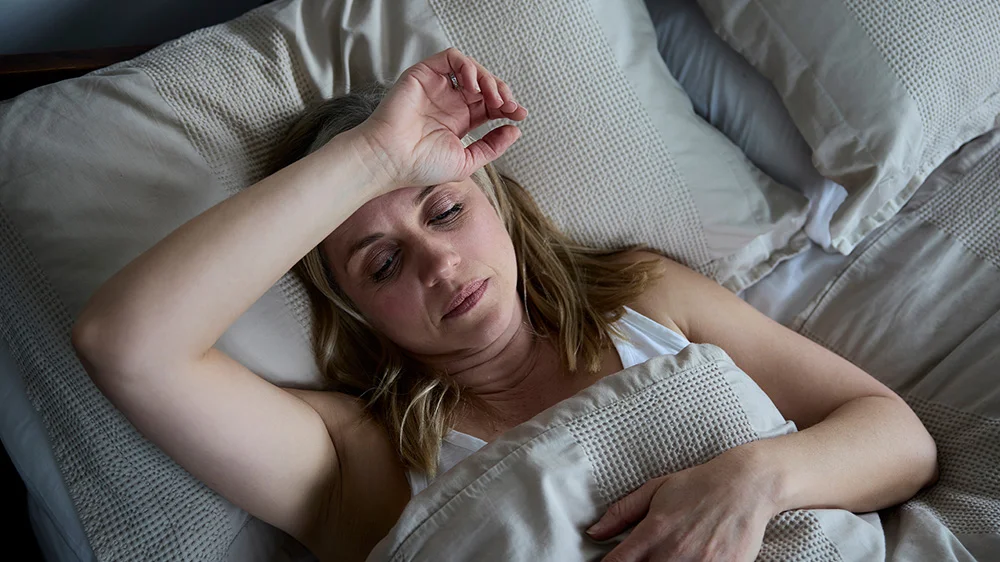
If you’ve been looking for another reason to get more sleep, we’ve got one for you: A new study published in January 2024, has confirmed a link between how well you sleep and your risk of developing dementia later in life. (1)
Researchers based at the University of California San Francisco (USCF) measured the sleep of 526 people in their mid-30s to late 40s using a device worn on the wrist. (2) As a group, the participants slept an average of six hours a night and almost half reported poor sleep.
Eleven years later, they went back to the study participants to check on their brain function and they found that the people who reported the worst sleep also had the worst cognitive performance more than a decade later. Cognitive performance, or cognition, describes how well you make decisions, remember things, and understand what you’re told or read, among other measurements. (3)
These results showed an association between poor sleep and cognitive decline, but didn’t establish a firm cause, says Dr. Mark Atkinson, MBBS, integrative medicine physician based in the UK. While no other recent research can confirm this result, other studies have found similar findings in other age groups. Experts believe that brain changes that lead to dementia can start decades before you notice the first symptom, but in midlife, these changes can still be reversed. (4)
How Much Sleep Do You Need?
Experts say adults over 18 should sleep anywhere from seven to nine hours a night. (5) While you sleep, your body is fixing you up for the next day. “Sleep helps mood, anxiety, cognition, and a myriad of other health issues,” says Dr. Alex Dimitriu, MD, psychiatrist, sleep medicine physician, and founder of Menlo Park Psychiatry & Sleep Medicine.
“Most fundamentally, the brain recharges when we sleep, and does a lot of cleanup and organization, so it is no surprise that poor sleep has a negative impact on cognition. The good news, at least in my practice, is that improving sleep can also improve many of the above stated issues.”
As you snooze, your heart rate and blood pressure fall, giving your cardiovascular system some much-needed rest. Your body also uses this time to repair cells, build up your immune system, and store away memories for later. (6)
“Whilst both are important, quality of sleep matters more than quantity of sleep,” says Atkinson. In the study, people who had the most disrupted sleep were over twice as likely to show poor cognitive performance when compared to those with the least disrupted sleep, Atkinsons says.
Your brain loves some good sleep, and this new study shows you can do your future self a big favor by getting those Zzzs!
Get Better Sleep for Your Future Brain Health
That all sounds great, but what if sleep eludes you? Rocky sleep can have a lot of causes. You can ask your healthcare provider about sleep disorders like insomnia, which makes it hard to sleep at least three days a week for over three months. (7)
But beyond medical diagnoses, you may find you can improve your snoozing by using good sleep hygiene, which describes how you do bedtime and what your sleeping environment is like. Here are some sleep hygiene tips to get you on a good sleep track: (8)
- Avoid caffeine and alcohol before bed.
- Go to bed and wake up at the same time every day (even on the weekends).
- Don’t eat or drink too much close to bedtime.
- Stay away from electronic blue light before you hit the sheets.
- Try a sound machine to mask sudden noises throughout the night.
- Make your sleeping environment and bed as comfortable as possible by keeping it dark, cool, and investing in cozy bedding.
Most importantly, try not to worry too much about it. “Getting stressed out about sleep can make it worse–so it’s worth taking these warnings with a grain of salt,” says Dimitriu. “To me, this is another…important reminder to get sleeping more and better. Lifestyle changes, de-stressing by day, exercise, having healthy and regular sleep habits can all help.”
Sources
1. Leng Y, Knutson K, Carnethon MR, Yaffe K. Association Between Sleep Quantity and Quality in Early Adulthood With Cognitive Function in Midlife. Neurology. 2024;102(2):e208056. doi:10.1212/WNL.0000000000208056
2. Actigraphy – Sleep Education by the American Academy of Sleep Medicine. Accessed January 10, 2024. https://sleepeducation.org/patients/actigraphy/
3. Dhakal A, Bobrin BD. Cognitive Deficits. In: StatPearls. StatPearls Publishing; 2023. Accessed January 12, 2024. http://www.ncbi.nlm.nih.gov/books/NBK559052/
4. Namsrai T, Ambikairajah A, Cherbuin N. Poorer sleep impairs brain health at midlife. Sci Rep. 2023;13(1):1874. doi:10.1038/s41598-023-27913-9
5. How Sleep Works – How Much Sleep Is Enough? | NHLBI, NIH. Accessed October 21, 2023. https://www.nhlbi.nih.gov/health/sleep/how-much-sleep
6. How Sleep Works – Why Is Sleep Important? | NHLBI, NIH. Accessed September 14, 2023. https://www.nhlbi.nih.gov/health/sleep/why-sleep-important
7. Insomnia – What Is Insomnia? | NHLBI, NIH. Accessed November 21, 2023. https://www.nhlbi.nih.gov/health/insomnia
8. Alanazi EM, Alanazi AMM, Albuhairy AH, Alanazi AAA. Sleep Hygiene Practices and Its Impact on Mental Health and Functional Performance Among Adults in Tabuk City: A Cross-Sectional Study. Cureus. Published online March 16, 2023. doi:10.7759/cureus.36221
9. Dimitriu, Alex, MD. Author interview. January 10, 2024.

























